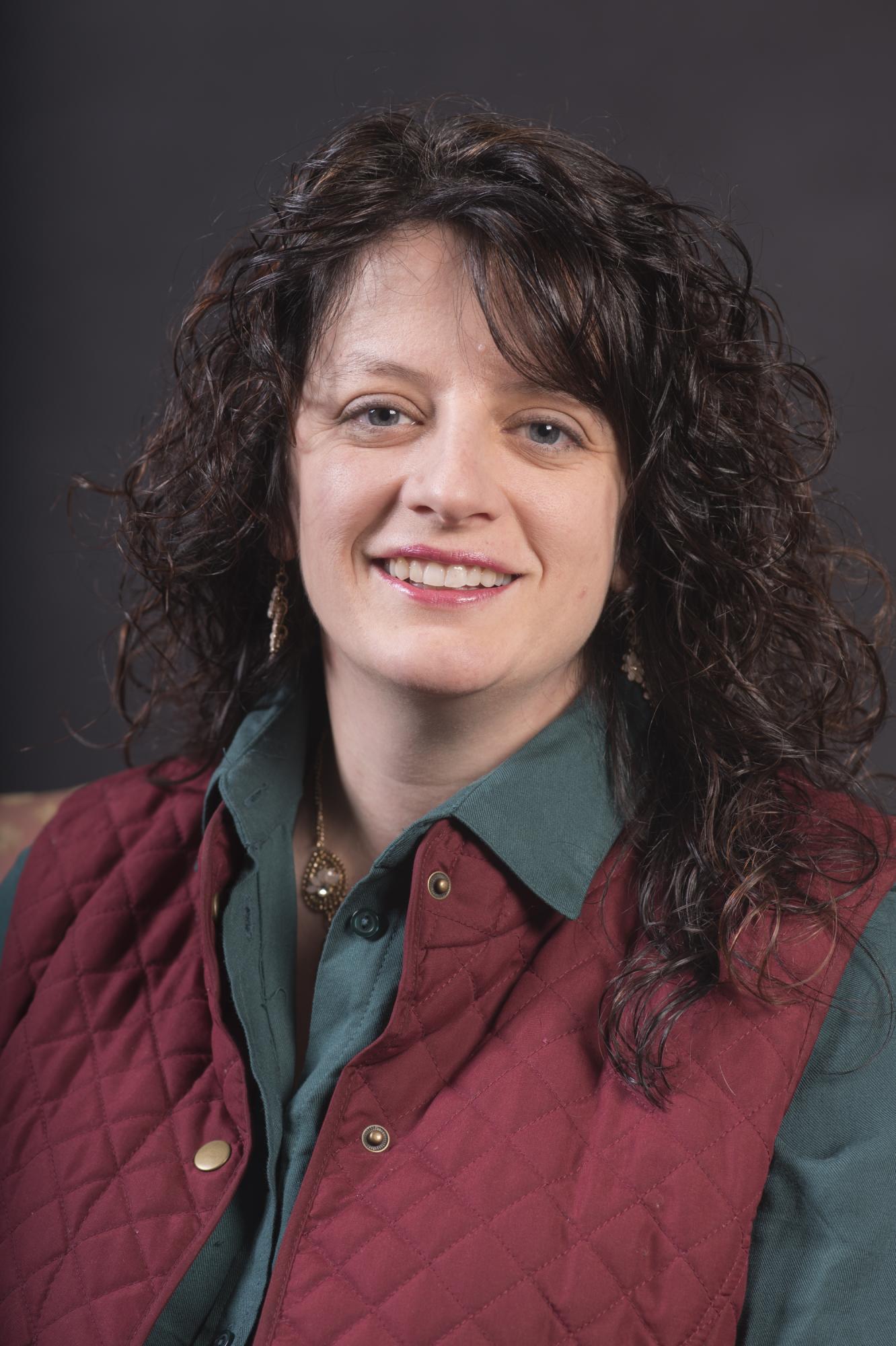Agricultural Science & Technology | Landscape Architecture | Plant Sciences
We are happy you are part of our PSLA family!
Plan your academic future!
Welcome
Welcome to the Department of Plant Science & Landscape Architecture!
Thank you for your interest in one of our undergraduate programs! We are excited to have you join our department. In order to prepare ahead we've prepared some information below for you to familiarize yourself with. Of course, if you have any questions please feel free to email us or write them down for when you visit during orientation!
Our Office Location: 2139 Plant Sciences Building, 4291 Fieldhouse Drive, College Park MD 20742
General Questions: Diana Cortez - dcortez@umd.edu.
UMD Email Address: Have you set up your directory ID? Visit the Division of Information Technology's New Incoming Students page! This ID is important as it will establish your UMD email, and allow you to register for classes, view your financial account, and so much more!
Orientation: Please visit the new student orientation website for information for first-year students, transfer students, and parents and families.
Advising: The Department has mandatory faculty advising for each of its majors and minor programs. Students are initially directed to the appropriate advisor in PSLA during Orientation. Subsequently, students will meet at a minimum of once each semester with their advisor. That meeting will occur during pre-registration. Advising sessions will focus on appropriate major and course selection, benchmarks, a four-year plan with progress toward a degree, internships and employment opportunities. Landscape Architecture students please visit LARC Advising.
Advising
Undergraduate Advising
The Department has mandatory faculty advising for each of its majors and minor programs. Students are initially directed to the appropriate advisor in PSLA during Orientation. Subsequently, students will meet at a minimum of once each semester with their advisor. That meeting will occur during pre-registration. Advising sessions will focus on appropriate major and course selection, benchmarks, a four-year plan with progress toward a degree, internships and employment opportunities.
Change your Major. If you are interested in declaring your major to AGST, PLSC, or LARC please sign up for a Change Your Major Workshop. Also, set-up a time to meet with the faculty advisor for that major. If you have additional questions, please email Diana Cortez at dcortez@umd.edu.
Sign up for a Change Your Major Workshop
Prepare for Advising
-
Check your assigned registration appointment. This is the earliest you can register for classes after meeting with your advisor. This does not indicate when you will meet with your advisor; you should meet with your advisor prior to this date and time.
-
Set-up an appointment with your faculty advisor prior to your assigned time from previous step.
-
Review your 4-year plan, including your CORE | GENED requirements to make sure you are on track. Please confirm any exceptions with your faculty advisor.
-
Review your Degree Audit to ensure that you are on track. Please make note of any questions/exceptions required so your advisor can review/edit as needed. You can also find your unofficial transcript by visiting Testudo.
-
You can also use Venus which is a very useful interactive scheduling and registration system. It helps you find the best schedule for you!
-
You may also meet with AGNR Peer Mentors. Meeting with an AGNR Peer Mentor may be very helpful, check with your advisor first.
-
Complete a General Schedule Request Form to indicate which classes you need. For Agricultural & Extension Education students, please use this Schedule Request Form.
-
Print out schedule form. Reminder: Class and advising blocks will not be lifted until after you see your faculty advisor so plan ahead. Bring to your advising form completed. You must bring in your schedule request form filled out; if not you will have to reschedule.
-
At your appointment the faculty advisor will handle exceptions, answer unique advising questions, and discuss your progress, goals, and academic direction. It will be useful if you prepare a list of questions and concerns before your advising meeting. This will ensure all your questions are answered promptly.
-
Get approval and advising block removed by your faculty advisor. Please let your advisor know if you are planning on dropping a course. This might have an impact to your time to graduation so it is important that you discuss this with your advisor prior to dropping the course.
Reminders:
-
Do not take courses outside of campus without first getting permission to do so. Contact your faculty advisor for more information.
-
If you are planning to graduate next semester, please apply to graduate through Testudo's "Graduation - Apply Here" option.
-
Discuss any potential exceptions requests with your faculty advisor. For more information, please visit the Undergraduate Catalog for university policies, fee information, and much more!
-
Don't forget that you have at your disposal many Tutoring & Academic Success Support services on campus!
Additional Questions?
For general questions, you can contact Diana Cortez, dcortez@umd.edu. You may also check out the Student Success Office website for useful resources.
Advisors
Faculty Advisors
| Major/Concentration | Faculty Photo | Faculty Advisor |
|---|---|---|
General Questions |
 |
dcortez@umd.edu | 301-405-4359 | PLS 2139 *Please note that if you are using your phone to schedule an appointment be sure the calendar is set to EST and not GMT. |
Agricultural Science & Technology: Agronomy Specialization(Major code: 0101A, previously 01010) Agricultural & Extension EducationAgricultural Science & Technology: Secondary Education (0101E) |
 |
drmwelsh@umd.edu | 301-405-6969 | PLS 2130 |
Agricultural Science & Technology: Environmental Horticulture(Major code: 0101B) PREVIOUSLY: Plant Sciences: Horticulture & Crop Production (Major code: 0107B) |
 |
Dr. Diana Cochran, Environmental Horticulture Assistant Clinical Professor & Advisor for Environmental Horticulture 301-405-6244 | cochrand@umd.edu |
Environmental Science and Policy: Environment and Agriculture (ENSP)(Major code: 2299T) |
 |
druggeri@umd.edu | 301-405-0229 | PLS 2136 |
|
(Major code: 01131) |
 |
Dr. Diana Cochran, Environmental Horticulture Assistant Clinical Professor & Advisor for Environmental Horticulture 301-405-6244 | cochrand@umd.edu |
Landscape Architecture(Major code: 02040) |
 |
druggeri@umd.edu | 301-405-0229 | PLS 2136 |
Plant Sciences: Landscape Management(Major code: 0107C; Minor code: #AG05) |
 |
mcarroll@umd.edu | 301-405-1339 | PLS 2132 |
Plant Sciences: Plant Biology(Major code: 0107D) |
 |
gcoleman@umd.edu | 301-405-4371 | PLS 2128 *Please note that if you are using your phone to schedule an appointment be sure the calendar is set to EST and not GMT. |
Plant Sciences: Turf & Golf Course Management(Major code: 0107E) |
 |
mcarroll@umd.edu | 301-405-1339 | PLS 2132 |
Plant Sciences: Urban Forestry(Major code: 0107F) |
 |
jsull@umd.edu | 301-405-1626 | PLS 2122 |
Four Year Plans
Four Year Academic Plans
Below you will find the 4-year plans for our majors/concentrations/specializations. If you have any questions please feel free to contact us and set up a meeting with us!
-
You can view course titles, descriptions, and learning outcomes on our Courses Offered & Learning Outcomes page.
-
For detailed explanation on the General Education program or the CORE program please visit: General Education- For Students page or What is CORE? page.
Agricultural Science & Technology (AGST) |
|
Landscape Architecture (LARC) |
|
Plant Sciences (PLSC) |
|
Internships
We thank our local and national partners for supporting the growth of young professionals.
We e-mail all internship and job opportunities that we receive from private industry, state, federal and municipal government offices, and non-profit organizations out to students on our list serves.
Employers:
If you are interested in sharing any job opportunities you have available with our students, please email pslapostings@umd.edu. Please include: 1) your contact information, and 2) an ad for the job opportunity. If you wish to post campus wide, please visit Career4Terps. Thank you!
Internship Course
Students: Don't forget to enroll in PLSC389/LARC389 Internship class! For approval of your internship please contact your faculty advisor or Dr. Mark Carroll, mcarroll@umd.edu.
Other Resources
Check out AGNR's Internships & Careers page for more resources. You may also want to check out Sustainability Internships and Opportunities on the Sustainable UMD website. Or the University Career Center & The President's Promise page that has resources on how to make a career plan, find internship opportunities, and career exposure opportunities.
Minors
Minors Available
There are over 80 terrific minors at Maryland. Some of the most popular minors that undergraduate students in the Department of Plant Science & Landscape Architecture take are:*
*Minor courses may conflict with courses required for your major.
Advising for your minors goes directly through the minor program.
For a full list of minors please visit the Minors page: Minors by College/School | Minors Alphabetically.
For policies regarding to Minors you may visit the Undergraduate Catalog. Go under 4. Registration, Academic Requirements, and Regulations, then Degree Information, and finally Minors.
Study Abroad
Get your passport ready!
For questions about the application, registration and pre-departure logistics, please contact the Study Abroad Office at 301-314-7746. Applications should be submitted through the Education Abroad Office.
Destinations
Italy
Coming soon!
New Zealand
New Zealand: Environmental Sustainability
Course Instructor: Dr. Andrew Ristvey
PLSC 489Z (3 credits). This course introduces students to New Zealand, a country of islands with an interesting geologic history. Originally part of the southern super continent Gondwana, which consisted of Australia, South Africa, India and Antarctica, until earth movements created today's New Zealand islands.
Although it consists of relatively small islands, it has the distinction of being biogeographically defined as a land mass in which birds and mammals can achieve completed speciation. Its geologic past resulted in plants and animals being distributed over water and land throughout New Zealand. Today the biota of New Zealand are excellent examples of high biodiversity and the endemism of island biogeography. This study-abroad experience highlights the natural history of New Zealand and the role that humans have had on its recent history as well current efforts to achieve sustainability on the islands.
Latin America
Medicinal Plants of the Amazon and the Andes
Faculty Instructor: Dr. Andrea Ottesen
PLSC489X (3 credits). Medicinal Plants of the Amazon and the Andes uses one of the most biologically diverse regions on the planet as a classroom setting to expose students to the incredible biochemistry of the flora of primary and secondary tropical rainforest. Students will learn about local medicinal plants and local Peruvian uses of plant properties to treat a wide range of ailments. Local healers will demonstrate preparation and use of specific plants. Toxic components of tropical plants will be examined and drugs that have been derived from rainforest biochemistry will be discussed. Sustainability issues will be introduced and examined from pharmaceutical "food pharmacy" and global health perspectives.
Learn more
Sustainable Futures - Monteverde, Costa Rica
This ten-week summer course of study is designed to offer students the opportunity to live and work on ecological and social projects in a rural, but rapidly developing region in Costa Rica. This is a multi-disciplinary program designed for students from various disciplines, including architecture, planning, landscape architecture, resource management, and international development. Students participate in a seminar on sustainable development, enroll in Spanish language classes, and take an intensive studio/internship with one of the many organizations in the Monteverde zone working toward sustainability. There is a final report, plans or design scheme, or actual environment intervention, depending on the nature of the work. In addition, there is a series of lectures and field trips to local cooperatives, ecologically managed farms, and various forest reserves.
This is a semester's worth of credits (12-13 credits) in a small rural community next to the Monteverde Cloud Forest Preserve in Costa Rica. Students work with community residents on various projects jointly defined. Participating programs hosted by the Monteverde Institute include University of Maryland Landscape Architecture Program, University of New York at Buffalo School of Architecture and Planning, University of Illinois Department Urban and Regional Planning and University of New York ESF at Syracuse. Fluency in Spanish is encouraged but not required.
For more information, contact David Myers, PhD, PLA, ASLA.
Support Services
Safety & Other Resources
There are many resources available to you as a University of Maryland student. Check out the Student Life page for a list of the many services on campus.
Below are examples of some of the many resources available on campus for students.
-
-
Emergency Number 301-405-3333/ #3333 from a mobile phone/ 911
-
UMD Police Safety Escort/Non-Emergency: 301-405-3555
-
-
Prince George's County Police: 911 from mobile phone / 301-352-1200 (non-emergency) / 911
-
NITE Ride: 301-314-6483 | UMD Alerts
-
University Health Center: 301-314-8180
-
Office of Civil Rights & Sexual Misconduct (Title IX): TitleIXcoordinator@umd.edu
-
Division of Student Affairs: Resources available regarding student life, for alumni and partners, staff and faculty, and more!
-
Counseling Center: Resources available to UMD students, faculty, and staff. Visit this website for counseling services, disability support, learning assistance, and testing and research.
-
University of Maryland Library Resources: Reference guide to selected landscape architecture resources in the University of Maryland Libraries.
-
Other examples: Academic Achievement Programs (AAP), National Center for Smart Growth Research and Education, The National Socio-Environmental Synthesis Center, Campus Sustainability, plus so much more!